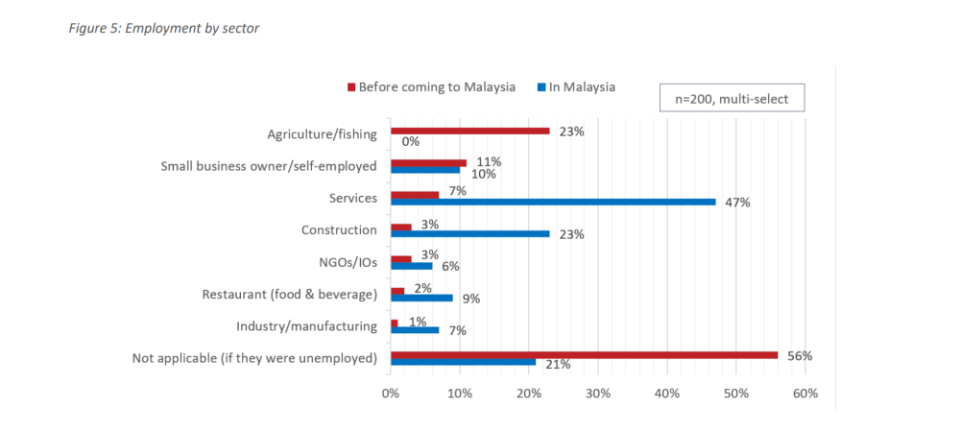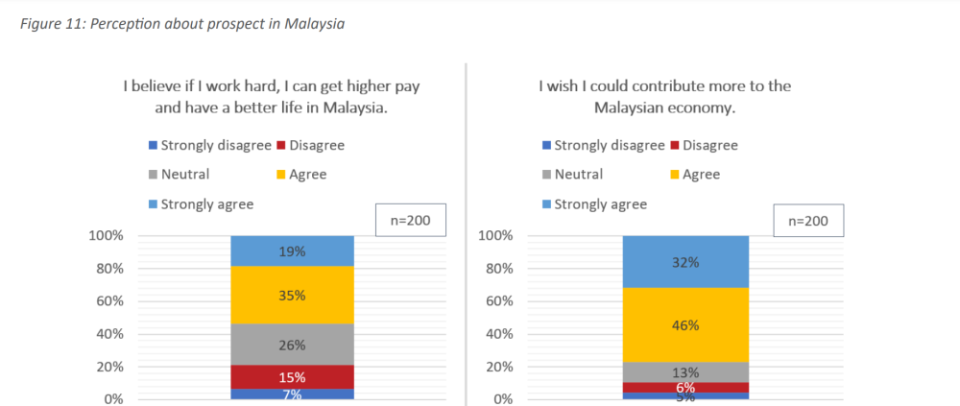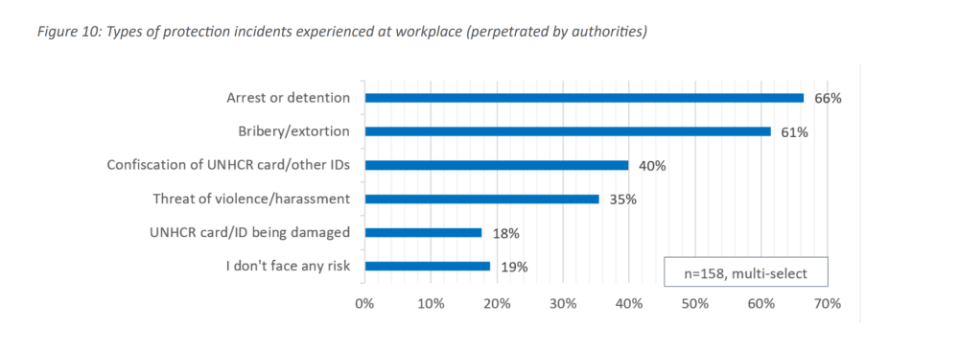Rohingya refugees not burdening Malaysia and could help its labour shortage, study says

KUALA LUMPUR, May 25 — Rohingya refugees in Malaysia were not draining public resources or just passively waiting for help, and could even be a solution to the country’s labour shortage if allowed to work legally, a new study has said.
In the joint report by the Protecting Rohingya Refugees in Asia (PPRiA) project and the Rohingya community, the majority of the 200 Rohingya refugees surveyed were found to be “self-reliant” with “minimal dependence” on the Malaysian government.
Evan Jones, manager of the Asia Displacement Solutions Platform (ADSP) that was part of the PRRiA project, said: “Contrary to public discourse, Rohingya refugees are not a burden on government resources nor are they passive recipients of aid.”
“Instead, Rohingya are actively eking out livelihood opportunities and are eager to continue learning and developing their skills,” she said in ADSP’s statement today on the recently-released report.
There are more than 106,000 Rohingya refugees registered in Malaysia with the UN refugee agency UNHCR as of last November.
Since Malaysia’s laws do not allow Rohingya refugees to work legally, their only option for survival is to work in the informal sector, which opened them to being abused by employers, exploited for lower or delayed pay, and denied protection in high-risk work environments, the report found.
Existing pool of labour who can help with Malaysia’s labour shortage
The ADSP said the Rohingya were already part of the workforce in key labour-intensive industries in Malaysia facing labour shortages, such as construction, despite not being allowed to work formally or legally.
The report said Malaysia was short of up to one million migrant workers when the economy has yet to fully recover from the Covid-19 pandemic, with the construction sector itself having a critical shortage of 400,000 workers since 2022.
The report found that 47 per cent of the 200 respondents worked in the service sector performing jobs as grass cutting, cleaning and car washing, followed by 23 per cent in construction, and 10 per cent were self-employed such as collecting scrap metal or recyclables, tailors, and market vendors.

Screengrab of the ‘Understanding the current and potential contribution of Rohingya refugees to the Malaysian economy’ report jointly done by the Protecting Rohingya Refugees in Asia (PPRiA) project and the Rohingya community.
According to ADSP, Rohingya refugees have diverse skills, resilience, and a desire to continue to up-skill, and could potentially help with manpower shortages in Malaysia and contribute significantly to the local economy.
“They often pick up language quickly and have an entrepreneurial spirit that can directly address the labour shortages that various industries are currently experiencing. By tapping into this talent pool, employers can not only fulfil their workforce needs but also benefit from the fresh perspectives, innovative ideas, and cultural diversity that refugees bring to the table,” ADSP said.
In the survey, Rohingya refugees working in Malaysia listed the most useful skills in their current roles as including Malay language proficiency, cooking, cleaning, construction skills and grass-cutting skills.
The top five skills that the female respondents wish to learn to get better income were sewing, English proficiency, Malay proficiency, baking, and cooking, while the male respondents were most interested in picking up these five skills of electricity and wiring, air-conditioner servicing, English proficiency, accounting or business, and automotive repair.
In the survey, 78 per cent agreed that they wished they could contribute more to the Malaysian economy, while 54 per cent believed that working hard would enable them to get better pay and a better life in Malaysia.
The report found that 72 per cent of respondents spent over RM1,500 each month, but the income from working in the informal sector was often not enough to cover their living expenses. While 41 per cent said they earn enough for their basic needs, another 36 per cent had to borrow money and depend on friends or family for their basic needs as they did not earn enough.

Screengrab of the ‘Understanding the current and potential contribution of Rohingya refugees to the Malaysian economy’ report jointly done by the Protecting Rohingya Refugees in Asia (PPRiA) project and the Rohingya community.
While already contributing to Malaysia’s economy through informal work and through their daily spending, the Rohingya refugees face financial insecurity due to the precarious nature of informal jobs, while facing possible exploitation from both their employers and Malaysian authorities.
The report found that 87 per cent of 158 Rohingya respondents who worked in the last five years in Malaysia had experienced exploitation at their workplace, such as being paid less than Malaysians or other migrant workers in similar roles, paid late, having their wages withheld, denied paid sick leave, and not provided with insurance.

Screengrab of the ‘Understanding the current and potential contribution of Rohingya refugees to the Malaysian economy’ report jointly done by the Protecting Rohingya Refugees in Asia (PPRiA) project and the Rohingya community.
Those who were in the same pool of the 158 respondents also reported incidents involving Malaysian authorities due to the lack of legal recognition and protection, such as being arrested or detained, being extorted for money, having their UNHCR card confiscated or damaged.
One 37-year-old Rohingya man in the survey was quoted saying: “... police asked for money even though I had [a] UNHCR Card without [committing any] offence but they accused me [saying that] I’m not allowed to work in Malaysia. They confiscated [my] wallet and took all [my] money from the wallet.”

Screengrab of the ‘Understanding the current and potential contribution of Rohingya refugees to the Malaysian economy’ report jointly done by the Protecting Rohingya Refugees in Asia (PPRiA) project and the Rohingya community.
The report said the lack of legal recognition for the Rohingyas’ refugee status and their inability to work legally were obstacles to them contributing to the local economy even if they were equipped to do so.
“While granting Rohingya refugees the right to work in Malaysia does not address the wider issue of refugee protection, it could empower refugees to participate fully in the economy and contribute more to the economy, and eventually create mutual benefits to both the host country and refugee community,” the report said.
The report recommended the Malaysian government set up a task force — involving multiple ministries, civil society organisations and refugee-led community-based groups — to formalise refugees’ work rights, and to promote labour protection and fair compensation for informal employment.
Among other things, the report said court decisions have affirmed that the Employment Act 1955 protects both local and foreign workers including undocumented migrant workers, and urged the labour department to also protect refugees who work.
The full 32-page report titled “Understanding the current and potential contribution of Rohingya refugees to the Malaysian economy” can be found here.



